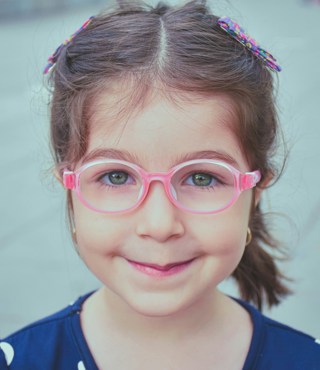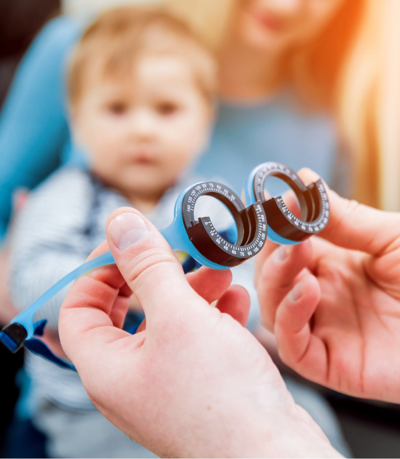
Ask the expert – I’m concerned my child may be short-sighted
Short-sightedness (myopia) is increasingly common in children and can affect activities like reading or watching TV. If your child struggles with vision, book an eye exam with an optometrist to check for myopia. Learn more from Coopervision.
We’d always recommend booking an appointment with your Optometrist at the first signs of short-sightedness to carry out an eye examination. If short-sightedness is diagnosed, you might hear us referring to the condition as Myopia, this is the medical term for short-sightedness.
Thankfully there are lots of solutions to help correct short-sightedness including spectacles, contact lenses and even myopia control lenses."
Our contact lens partners at Coopervision have provided some further useful guidance on myopia in children.
Thankfully there are lots of solutions to help correct short-sightedness including spectacles, contact lenses and even myopia control lenses."
Our contact lens partners at Coopervision have provided some further useful guidance on myopia in children.
What Is Myopia (Short-Sightedness)?
Myopia is the medical term for short-sightedness, this happens when the eyeball is too long or too powerful and means that glasses or contact lenses are needed to see things like the T.V. and whiteboards at school clearly. Usually, short-sight develops in childhood and the strength of the glasses prescription tends to increase during school years as the eyes continues to grow.Why does myopia matter?
As myopia develops, children will need stronger glasses, and they will have poorer vision without their spectacles on. Sometimes this can influence the child’s day-to-day activities such as sports and other activities. Myopia can also affect the health of the eye; higher levels of myopia are linked to an increased risk of developing eye diseases such as retinal detachment, maculopathy, glaucoma and cataract in later adult life.
What causes myopia?
If one or both parents are myopic, the chance of their child becoming short-sighted increases. Children are most likely to become myopic between the ages of seven and 13 years, but myopia can keep increasing in level throughout the teenage years and sometimes into early adult-hood.
Managing Myopia
Traditionally we correct the poor vision in myopia with standard spectacle or contact lenses. However, we can now more actively manage myopia to slow down the changes in the prescription and growth of the eye. There are a variety of options to do this, ranging from different designs of spectacle lenses, contact lenses and the use of eye drops (though not all options are available in the UK at present). These new options do not reverse myopia or always stop it from getting worse, but they do slow down the rate at which it might get worse. Evidence from research suggests that a special design of contact lenses (MiSight® 1 day) slows myopia progression by an average of around 50%.Can we stop myopia from developing?
Scientists are working on the cause, but we currently do not know why myopia develops. We do know that spending time outdoors seems to delay when myopia might start. We think that the brightness of light outdoors is beneficial to the eyes so getting your child outdoors for at least 90 minutes a day (or 11 hours per week) is recommended.
How do I know if my child is short-sighted?
Common signs could be:
-
Struggling to see the whiteboard at school.
-
Squinting or complaining of blurry vision.
-
Sitting too close to the TV.
How to get help
A comprehensive eye examination with an optometrist will include an eye health check as well as vision tests. If they are short-sighted then ask specifically about myopia management.
A comprehensive eye examination with an optometrist will include an eye health check as well as vision tests. If they are short-sighted then ask specifically about myopia management.



